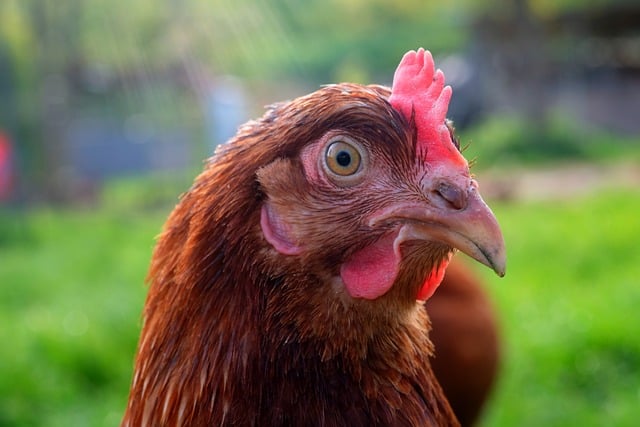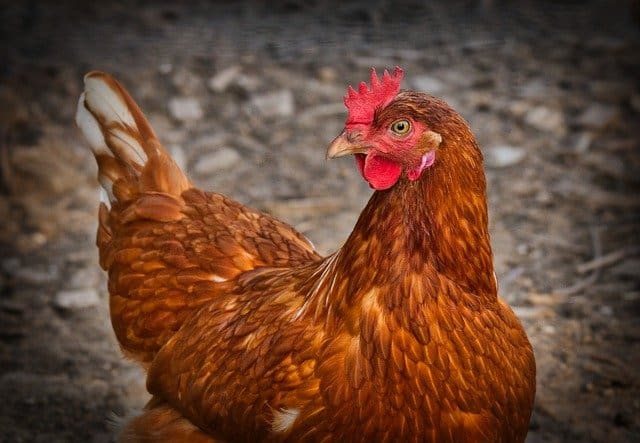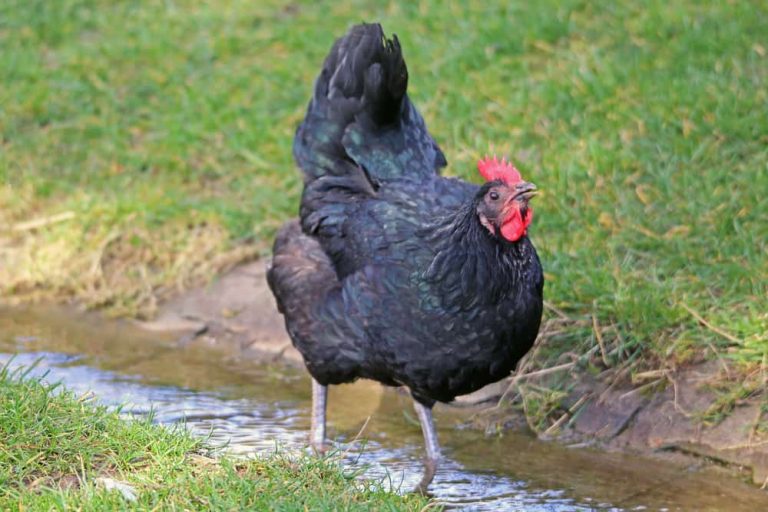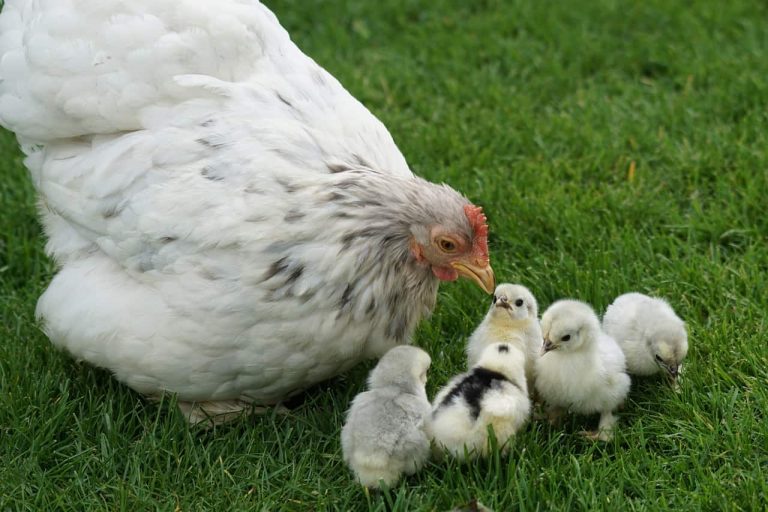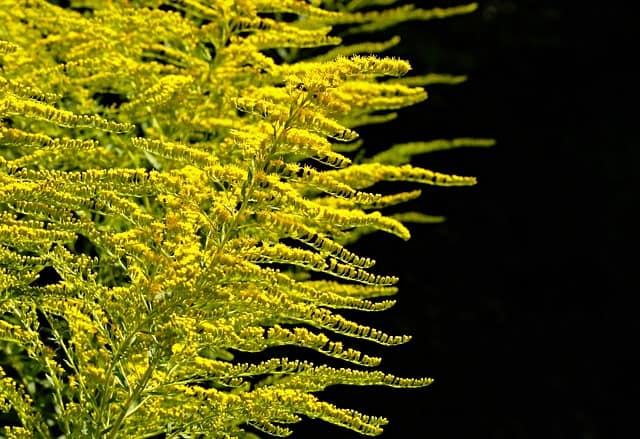Chickens never struggle with appetite. You’ll always see them trying to eat anything. Besides, they are opportunistic feeders. This can predispose them to many problems because some of the things they eat may actually be detrimental to their well-being.
As their caretakers, you are the ones to ensure what they eat is safe and healthy for them. When it comes to fish, chickens will eat just about any type offered to them. So, can chickens eat salmon? Is it safe, and should you allow your feathered pets to eat them?
I say straight away that chickens can eat salmon, which is a very healthy addition to their daily diet. Chickens need a balanced diet consisting of proteins, carbohydrates, fats, water, vitamins, and minerals. Salmon is a great source of healthy protein and fat.
Contents
Why It’s Acceptable to Give Your Chicken Salmon
While chickens are generally omnivorous and can consume a variety of foods, including meat, it is not recommended to feed them raw or uncooked salmon. Raw salmon may contain a parasite called Neorickettsia helminthoeca, which can cause a disease called salmon poisoning. This disease can be fatal to chickens and other animals.
If you want to include fish in your chicken’s diet, cooking the fish thoroughly to kill any potential parasites or bacteria is best. Cooked salmon can be a source of protein and healthy fats for chickens, but it should be given in moderation and as part of a balanced diet. It’s important to remember that the primary diet of chickens should consist of grains, seeds, vegetables, and specially formulated poultry feed.
Also read: Best Chicken Nesting Boxes Reviews
Nutritional content of salmon
Salmon can be a nutritious addition to a chicken’s diet, providing several beneficial nutrients. Here are some key nutritional components of salmon:
Protein
Salmon is a rich source of high-quality protein. Protein is essential for muscle development, growth, and overall health in chickens. Chicken fed healthy animal protein can make your chicken grow fast, be resistant to fowl diseases, and produce optimally.
Omega-3 fatty acids
Salmon is well-known for its omega-3 fatty acid content, particularly eicosapentaenoic acid (EPA) and docosahexaenoic acid (DHA). These fatty acids have anti-inflammatory properties and contribute to heart health and brain function in chickens.
Minerals
Salmon contains various minerals, including calcium, iron, phosphorus, and selenium. These minerals are important for bone strength, red blood cell production, energy metabolism, and immune function in chickens.
Vitamin D
Salmon is one of the few food sources of vitamin D, which plays a crucial role in calcium absorption and bone health in chickens.
B vitamins
Salmon is a good source of B vitamins, such as niacin, vitamin B6, and vitamin B12. These vitamins are involved in energy metabolism, nerve function, and the production of red blood cells.
When incorporating salmon into a chicken’s diet, it’s important to do so in moderation and ensure it is cooked thoroughly to eliminate the risk of parasites or bacteria. Salmon should be offered as part of a balanced diet that includes a variety of other foods to meet all of a chicken’s nutritional needs.
How To Serve Your Chicken with Salmon
We have already alluded to the fact that you should never serve your chicken with uncooked salmon. Below is a more in-depth discussion on how to serve your birds this protein-rich treat.
If you want to serve salmon to chickens, it’s essential to prepare and serve it properly to ensure their safety and maximize nutritional benefits. Here’s a suggested method:
Cook The salmon.
It is crucial to cook the salmon thoroughly to kill any potential parasites or bacteria. Bake, grill, or poach the salmon until it reaches an internal temperature of 165°F (74°C). Avoid adding any seasonings or spices that may be harmful to chickens, such as excessive salt or garlic.
Let It Cool
Allow the cooked salmon to cool down completely before serving it to the chickens. This ensures that it is safe to handle and won’t burn their mouths or digestive systems. In other words, hot salmon will be unpalatable for the chicken, and they may develop a negative attitude even when given later.
Shred or Chop
Break the cooked salmon into small, manageable pieces. You can shred it with a fork or chop it into bite-sized portions. This makes it easier for chickens to eat and digest. Older chickens with larger and stronger beaks may be able to eat salmon without much problem. Not so with younger chicks.
Serve In moderation.
While salmon can be a healthy addition to a chicken’s diet, it should be offered in moderation. Too much salmon can lead to an imbalanced diet, and chickens require a varied and balanced range of foods. Treat salmon as a special treat rather than a regular staple.
Combine With Other foods.
Mix the shredded or chopped salmon with the regular feed or other suitable chicken-friendly foods. You can incorporate it into their regular meal by combining it with grains, vegetables, or specially formulated poultry feed to ensure they receive a balanced diet.
Remember, the primary diet of chickens should consist of grains, seeds, vegetables, and specially formulated poultry feed. Salmon can be an occasional supplement but should not replace their main feed.
The Benefits of Including Salmon in Your Chicken’s Diet
Salmon can provide several benefits to chickens when included in their diet. Here are some potential advantages:
Protein Source
Salmon is a rich source of high-quality protein. Including salmon in a chicken’s diet can help meet their protein requirements, which are essential for growth, development, and overall health.
Omega-3 Fatty Acids
Salmon is known for its high content of omega-3 fatty acids, particularly EPA (eicosapentaenoic acid) and DHA (docosahexaenoic acid). When chickens consume salmon, these beneficial fatty acids are transferred to their eggs or meat. Omega-3 fatty acids have various health benefits, including promoting heart health, reducing inflammation, and supporting brain function.
Improved Egg Quality
When chickens are fed a diet that includes salmon, the omega-3 fatty acids can enhance the nutritional profile of their eggs. Omega-3-enriched eggs have higher levels of omega-3 fatty acids, which are desirable for consumers looking to increase their intake of these healthy fats.
Antioxidants
Salmon contains antioxidants like selenium and astaxanthin, which have protective effects on cells and tissues. When consumed by chickens, these antioxidants can contribute to their overall well-being and help strengthen their immune system.
Flavor Enhancement
Incorporating salmon into a chicken’s diet can provide a different taste experience. The flavor and aroma of the salmon can influence the taste of the chicken’s meat, offering a unique and potentially more flavorful product for consumers.
It’s worth noting that while salmon can be beneficial for chickens, it should be fed in moderation and as part of a balanced diet. Consult with a poultry nutritionist or veterinarian for specific recommendations on incorporating salmon into a chicken’s feed regimen.
Potential Concerns with Feeding Chicken on Salmon
While there are potential benefits to feeding salmon to chickens, there are also some considerations and potential drawbacks to be aware of:
Cost
Salmon can be relatively expensive compared to other feed options. Feeding salmon to chickens regularly may increase the overall cost of their diet.
Allergies and Sensitivities
Some chickens may develop allergies or sensitivities to certain ingredients present in salmon. This can lead to digestive issues, allergic reactions, or other health problems. It’s important to monitor the chickens closely for any adverse reactions when introducing new feed ingredients.
High Fat Content
Salmon is known for its relatively high fat content, especially in the form of omega-3 fatty acids. While these fats can be beneficial in moderation, excessive fat intake can lead to obesity and related health issues in chickens. It’s important to balance the fat content in their diet to maintain optimal body condition.
Contaminants
Salmon harvested from certain environments can potentially contain contaminants such as heavy metals (mercury and lead) and polychlorinated biphenyls (PCBs). These contaminants can accumulate in the flesh of the fish and, if present, may be transferred to the chickens consuming the salmon. It is crucial to ensure that the salmon used as feed is sourced from safe and regulated suppliers to minimize the risk of contamination.
Imbalance in Nutrient Composition
Salmon is different from the typical feed ingredients used in chicken diets, and incorporating it without considering the overall nutrient balance may disrupt the nutritional composition of the feed. It is important to work with a poultry nutritionist to ensure that the diet remains balanced and meets the specific nutrient requirements of the chickens.
Palatability and Acceptance
Chickens can be selective eaters, and not all chickens may readily accept or enjoy the taste of salmon. Some chickens may show reluctance to consume salmon or may prefer other feed options. It is important to monitor their response and adjust their diet accordingly to ensure adequate consumption of essential nutrients.
Conclusion
As with any dietary changes for chickens, it is advisable to consult with a poultry nutritionist or veterinarian to determine the appropriate feed composition and feeding practices based on your flock’s specific needs and circumstances. Salmon is healthy, and if fed appropriately and in moderation, it can help your chicken achieve optimal weight quickly and even boost their egg production.

